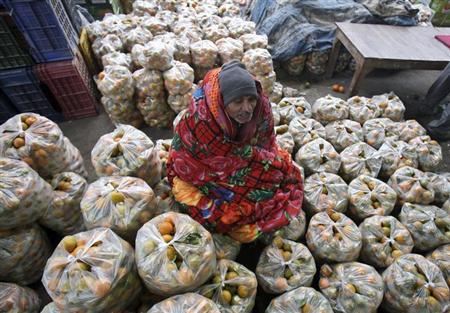LONDON – Poverty and the all-consuming fretting that comes with it require so much mental energy that the poor have little brain power left to devote to other areas of life, according to the findings of an international study published on Thursday.
The mental strain could be costing poor people up to 13 IQ (intelligence quotient) points and means they are more likely to make mistakes and bad decisions that amplify and perpetuate their financial woes, researchers found.
"Our results suggest that when you are poor, money is not the only thing in short supply. Cognitive capacity is also stretched thin," said Harvard economist Sendhil Mullainathan, part of an international team that conducted the study.
In a series of experiments, researchers from Harvard, Princeton and other universities in North America and from Britain's University of Warwick found that pressing financial worries had an immediate impact on poor people's ability to perform well in cognitive and logic tests.
Far from signalling that poor people are stupid, the results suggest those living on a tight budget have their effective brain power, or what the researchers called "mental bandwidth", dramatically limited by the stress of making ends meet.
On average, someone weighed down by money woes showed a drop in cognitive function in one part of the study that was comparable to a 13 point dip in IQ, and similar to the performance deficit expected from someone who has missed a whole night's sleep.
"Previous views of poverty have blamed (it) on personal failings, on an environment that is not conducive to success," said Jiaying Zhao, an assistant professor of psychology at the University of British Columbia in Canada.
"We are arguing that the lack of financial resources itself can lead to impaired cognitive function," she said.
Eldar Shafir, a professor of psychology and public affairs at Princeton who worked on the research team, said it was not stress in general, but financial worries in particular, that led to a reduced ability to make sound decisions.
"The poor are often highly effective at focusing on and dealing with pressing problems," he said. "But they don't have leftover bandwidth to devote to other tasks.
"So, if you live in poverty, you're more error prone and errors cost you more dearly – it's hard to find a way out."
The researchers studied two very different groups - shoppers at a mall in New Jersey in the United States, and sugar cane farmers in rural India.
In the mall study, they gathered dozens of low and middle-income shoppers and subjected them to a battery of tests to measure IQ and impulse control.
Half of the participants were first asked to think about what they would do if their car broke down and the repair cost $1,500 - designed to kick off worries about money. It was among these people that performance dipped significantly.
In India, the researchers found that farmers had diminished cognitive performance before getting paid for their harvest compared to afterwards, when their coffers have been replenished.
"One month after the harvest, they're pretty rich, but the month before - when the money has run out - they're pretty poor," Mullainathan said in a report of the research, which was published on Thursday in the journal Science.
"What we see is that IQ goes up, (when they are rich)... errors go way down, and response times go way down."
He said the effect in India was about two-thirds the size of the effect in the mall study - equal to around nine or 10 IQ points difference from one month to the next.





















































